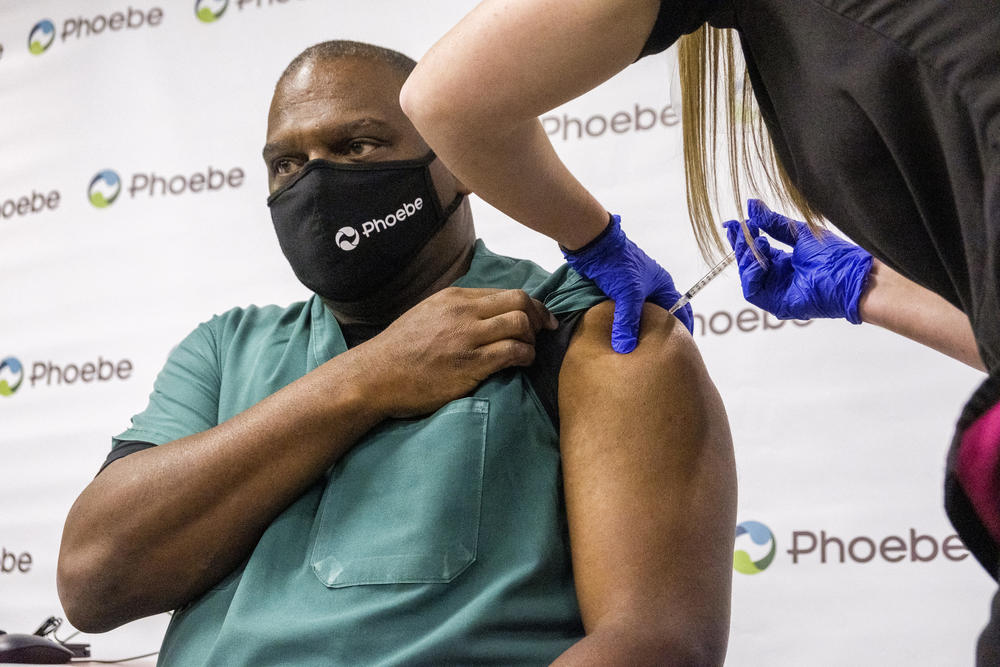
Caption
Dr. James Black, head of emergency medicine at Phoebe Putney Memorial Hospital in Albany, Ga., was the first to receive the COVID-19 vaccine December 2020 in the city that was once among the most severely affected pandemic hotspots in the world.
Credit: Grant Blankenship/GPB

